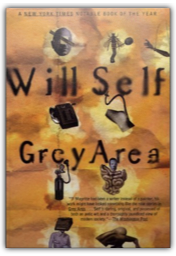
The latest collection of short stories by Will Self explores a world so saturated with sensory stimulation its inhabitants are immune to it. In the minds of his characters, vastly complicated interior worlds and conspiracies are formed as protection against the monotony and emptiness of life. In the title story, a stenographer works for a company whose policy is to consume its own products, leading to the spiritual consumption of everyone who works for it. For Self's characters, reality is a virtual reality, imagined into existence as relief from the vapidity of themselves. 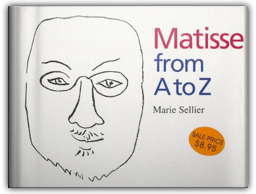
The life of the French painter, Henri Matisse, arranged in vignettes suggested by an alphabetical sequence of French words that focus on a key element of his life or work. 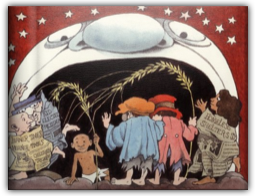
We are all in the dumps 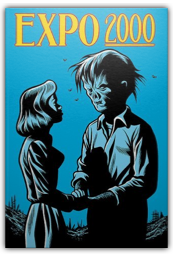
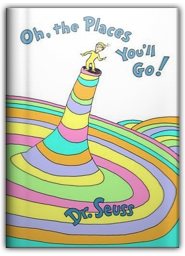
Inspirational yet honest, and always rhythmically rollicking, Oh, the Places You'll Go! is a perfect sendoff for children, 1 to 100, entering any new phase of their lives. Kindergartners, graduate students, newlyweds, newly employeds—all will glean shiny pearls of wisdom about the big, bountiful future. The incomparable Dr. Seuss rejoices in the potential everyone has to fulfill their wildest dreams: "You'll be on your way up! / You'll be seeing great sights! / You'll join the high fliers / who soar to high heights." At the same time, he won't delude the starry-eyed upstart about the pitfalls of life: "You can get all hung up / in a prickle-ly perch. / And your gang will fly on. / You'll be left in a Lurch." 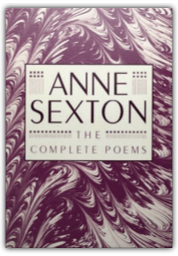
She drew her poems from a great depth in herself, and they continue to stir us...Her voice remains a distinctive one in American poetry of the past half century. — J.D. McClatchy |
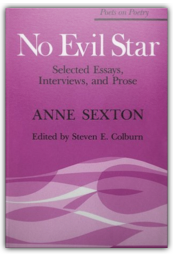
Collects the best of Anne Sexton's memoirs and prose reflections on her development as a poet 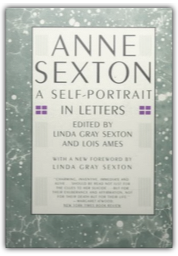
An expression of this extraordinary poet's life story in her own words. The letters—brilliant, lyrical, caustic, passionate, angry—are a consistently revealing index to her quixotic and exuberant personality. 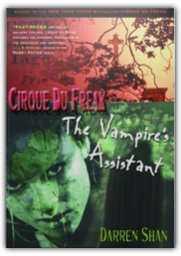
What if you were an unwilling vampire? You needed to drink human blood to stay alive, but you weren't some horror-flick villain; you were you, born human—a nice person, even. Thus is the dilemma of the young narrator-protagonist, Darren Shan, in this tremendously suspenseful, oft-sickening sequel to Cirque Du Freak: The Saga of Darren Shan. In the first book, Darren becomes a vampire's assistant to save the life of his friend Steve. In order to do so, he has to fake his death, get buried alive, and head out—half-human, homeless, and friendless—into the world. The Vampire's Assistant chronicles his new lonely life as a half-vampire, pumped with the cursed blood of his vampire guardian, Mr. Crepsley. Darren has much to learn about his freshly supernatural state. He doesn't grow fangs, for instance, like he thought he might. And he can't change shape or fly. Garlic just gives vampires bad breath... And they eat bagels. Some of the hardest lessons of all come when he joins the traveling freak show Cirque Du Freak, the show that got him and Steve in trouble in the first place. Readers won't be disappointed by this fast-paced, gory, but strangely amiable sequel. In fact, the plot is much better paced than the first and the dialogue far more natural. Deadly pythons, a snake boy, Cormac Limbs (bite off his finger and it grows back!), and an entire cast of dreadfully creepy characters offer excitement beyond expectation. Along the way, we come to really like Darren, who will do absolutely anything for a friend. British author Darren Shan promises more adventures in 2002. (Ages 10 and older) —Karin Snelson 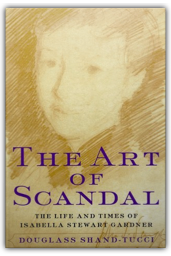
Henry James fictionalized her, John Singer Sargent painted her, Bernard Berenson advised her. But art collector extraordinaire Isabella Stewart Gardner (1840-1924) was more than a rich socialite who lucked into friendships with the leading cultural figures of her day. Boston historian Douglass Shand-Tucci convincingly claims her as a pioneering multiculturalist—her famous museum in Fenway Court enshrined Asian art as well as that of the old masters—and a rebel who befriended Jews, homosexuals, and other outcasts from Victorian society. Shand-Tucci's highly colored, romantic prose aptly evokes his fiery, willful, egotistical subject. 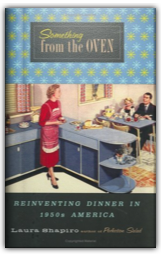
In this delightfully surprising history, Laura Shapiroauthor of the classic Perfection Saladrecounts the prepackaged dreams that bombarded American kitchens during the fifties. Faced with convincing homemakers that foxhole food could make it in the dining room, the food industry put forth the marketing notion that cooking was hard; opening cans, on the other hand, wasnt. But women werent so easily convinced by the canned and plastic-wrapped concoctions and a battle for both the kitchen and the true definition of homemaker ensued. Beautifully written and full of wry observation, this is a fun, illuminating, and definitely easy-to-digest look back at a crossroads in American cooking. 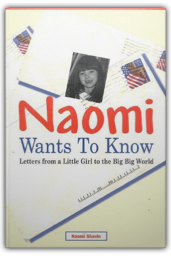
These are the simple, heartfelt questions any young child might ask. And the responses are uniformly charming and instructive. Naomi's correspondents include an earthworm scientist, the Tooth Fairy, Roy Disney, the National Hurricane Center, Evander Holyfield, and Madeleine Albright. A fun gift book, parenting book, and teaching tool. |

My Library
Collection Total:
1390 Items
1390 Items
Last Updated:
Mar 22, 2009
Mar 22, 2009



 Made with Delicious Library
Made with Delicious Library